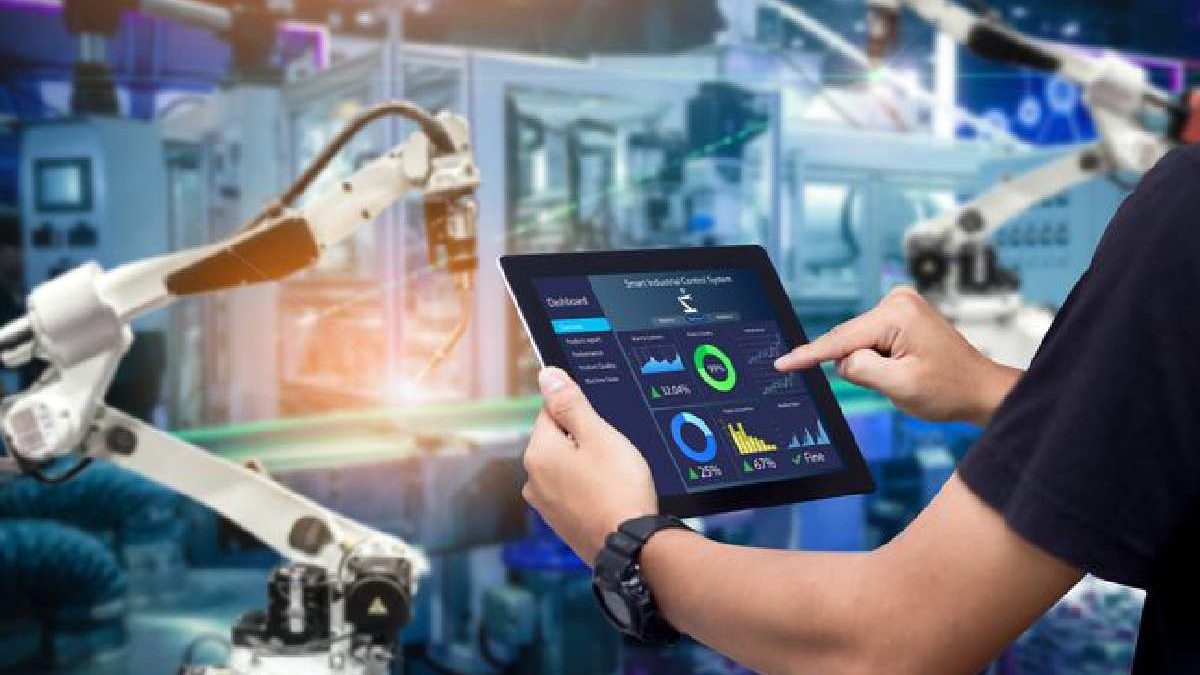In the dynamic world of manufacturing, where precision and efficiency are not just goals but necessities, the advent of smart manufacturing has been nothing short of a revolution. Imagine a world where machines and systems communicate seamlessly, where production lines self-optimize, and quality control is more a science than an art. This is not the stuff of science fiction; it’s the reality of today’s manufacturing industry, powered by integrated IT solutions. As we delve into this article, we invite IT managers and business leaders in the manufacturing realm to explore how these technological advancements are not just enhancing productivity and quality but are reshaping the very fabric of the industry.
Table of Contents
Understanding Smart Manufacturing
Smart manufacturing represents a transformative approach to industrial production, one that leverages the power of advanced information technology to revamp manufacturing operations. At its core, smart manufacturing integrates various technological components such as:
- Internet of Things (IoT): Devices and sensors connected across the manufacturing floor, enabling data collection and analysis in real-time.
- Artificial Intelligence (AI) and Machine Learning (ML): Technologies that analyze data to optimize operations, predict maintenance needs, and enhance decision-making.
- Robotics and Automation: Robots and automated systems that streamline production processes, improving efficiency and reducing human error.
- Big Data Analysis: Handling large volumes of data generated by smart devices to gain actionable insights.
- Cloud Computing: Enables scalable storage and computing power, facilitating remote monitoring and collaboration.
- Additive Manufacturing: 3D printing technologies that allow for more flexible and customized production.
- CNC Machining: Computer-controlled machining for precise and efficient manufacturing.
How IT Solutions are integral to smart manufacturing
IT solutions form the backbone of smart manufacturing by interconnecting every aspect of the manufacturing process. They enable:
- Seamless Communication: IoT devices communicate with each other, creating an interconnected network that optimizes the manufacturing process.
- Data-Driven Decisions: AI and ML analyze data from various sources, enabling predictive maintenance and quality control.
- Efficiency and Flexibility: Automation and robotics increase production efficiency, while cloud computing provides the flexibility to scale operations as needed.
- Customization: Advanced technologies like AI and additive manufacturing allow for greater customization of products.
Real-world Examples of Smart Manufacturing in Action
Several companies have successfully implemented smart manufacturing techniques, showcasing the potential of these technologies:
- Tesla Gigafactory: An exemplar of automation and robotics, this facility significantly scales up battery production with high efficiency and precision.
- Infineon’s Smart Factory: This factory incorporates IoT and AI to optimize its semiconductor manufacturing process, enhancing both productivity and quality.
- Haier Group: By integrating smart technologies, Haier has transformed its production lines, improving flexibility and responsiveness to market demands.
- Adidas Speed Factory: Utilizing automation and additive manufacturing, Adidas has been able to produce shoes faster and more customized to consumer preferences.
- BJC HealthCare: Their smart manufacturing approach involves leveraging data analytics for better healthcare equipment production.
- Johnson & Johnson DePuy Synthes: Incorporating advanced technologies for the production of medical devices, enhancing precision and safety.
- Bosch Connected Factory: Bosch’s factories utilize IoT and cloud computing for more efficient and flexible production processes.
- Schneider Electric: Implements smart manufacturing to improve energy management and automation solutions.
These examples demonstrate how integrating IT solutions in manufacturing not only enhances productivity and quality but also propels companies towards a more efficient, flexible, and competitive future.
Benefits of Integrating IT Solutions in Manufacturing
Enhanced Productivity: Automated Processes, Predictive Maintenance, Real-Time Monitoring
The integration of IT solutions in manufacturing significantly boosts productivity. Automated processes streamline operations, reducing the time and manpower needed for repetitive tasks. Predictive maintenance, empowered by data analytics and machine learning, anticipates equipment failures before they occur, minimizing downtime. Additionally, real-time monitoring allows for the immediate identification and rectification of issues, ensuring continuous and efficient production.
Improved Quality: Precision, Reduced Human Error, Consistent Quality Control
Quality is paramount in manufacturing, and IT solutions play a crucial role in enhancing it. Automation and precision tools enable consistent production quality, reducing variability caused by human error. Quality control processes are augmented with advanced analytics and machine learning, ensuring products meet stringent standards. This leads to a higher level of customer satisfaction and fewer product recalls or defects.
Economic Advantages: Cost Reduction, Increased Efficiency, ROI of IT Investments
Integrating IT solutions into manufacturing processes also offers significant economic benefits. These technologies often lead to a reduction in operational costs by optimizing resource utilization and reducing waste. Efficiency gains from automation and improved processes translate into higher throughput and better use of capital investments. Over time, these improvements can offer a substantial return on investment (ROI), justifying the initial expenditure on IT solutions and contributing to the overall financial health and competitiveness of the company.
Conclusions
As we conclude our exploration of smart manufacturing and the integration of IT solutions, it’s clear that this technological leap is not just a trend but a pivotal shift in the manufacturing landscape. For IT managers and business leaders, the message is unequivocal: embracing these technologies is essential for staying competitive in a rapidly evolving industry. By enhancing productivity, improving quality, and driving economic advantages, smart manufacturing stands as a beacon of innovation and efficiency. As the future of manufacturing continues to unfold, those who adopt and adapt to these IT solutions will undoubtedly lead the charge toward a more efficient, precise, and profitable manufacturing era.

